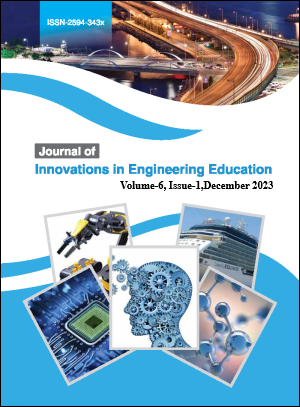Strength evaluation in sub-base material due to variation of fine particles in soil
DOI:
https://doi.org/10.3126/jiee.v6i1.47803Keywords:
Compaction, Optimum Moisture Content, Maximum Dry Density, Grain Size, Sub Base.Abstract
For the development of road infrastructure and the various layers connected to it, soils must be compacted in order to increase their strength. Among many other variables, soil type, moisture content, and compaction energy have a significant impact on the compaction qualities of soil. Present study is done to evaluate strength of sub-base material with varying percentage of fines and also the variation of dry density, Optimum Moisture Content (OMC) and California Bearing Ratio (CBR) with fine content. The Standard Proctor Test was the technique used to determine the Maximum Dry Density (MDD) from various soils.On material recovered from the TikaBhairav and BhimPhedi quarries, several laboratory tests were performed. The objective of laboratory test is to find the gradation of aggregate mix followed by index properties of fine, compaction property and strength in terms of CBR. The MDD and strength of two types of aggregate were discovered through this study. For classification of aggregate mix the Unified Soil Classification System was used. For sub-base material obtained from TikaBhairab, at an OMC of 8.06% best compaction was achieved at 15% fine content. Similarly, for sub-base material obtained from BhimPhedi, best compaction was achieved at 10% fine content compacted at an OMC of 8.05%. Also the result indicates that for sample obtained from TikaBhairab, well graded gravel with silt has higher MDD and for materials obtained from BhimPhedi, poorly graded gravel has higher MDD.
Downloads
Downloads
Published
How to Cite
Issue
Section
License
Copyright (c) 2023 JIEE and the authors

This work is licensed under a Creative Commons Attribution-NonCommercial-NoDerivatives 4.0 International License.
Upon acceptance of an article, the copyright for the published works remains in the JIEE, Thapathali Campus and the authors.

